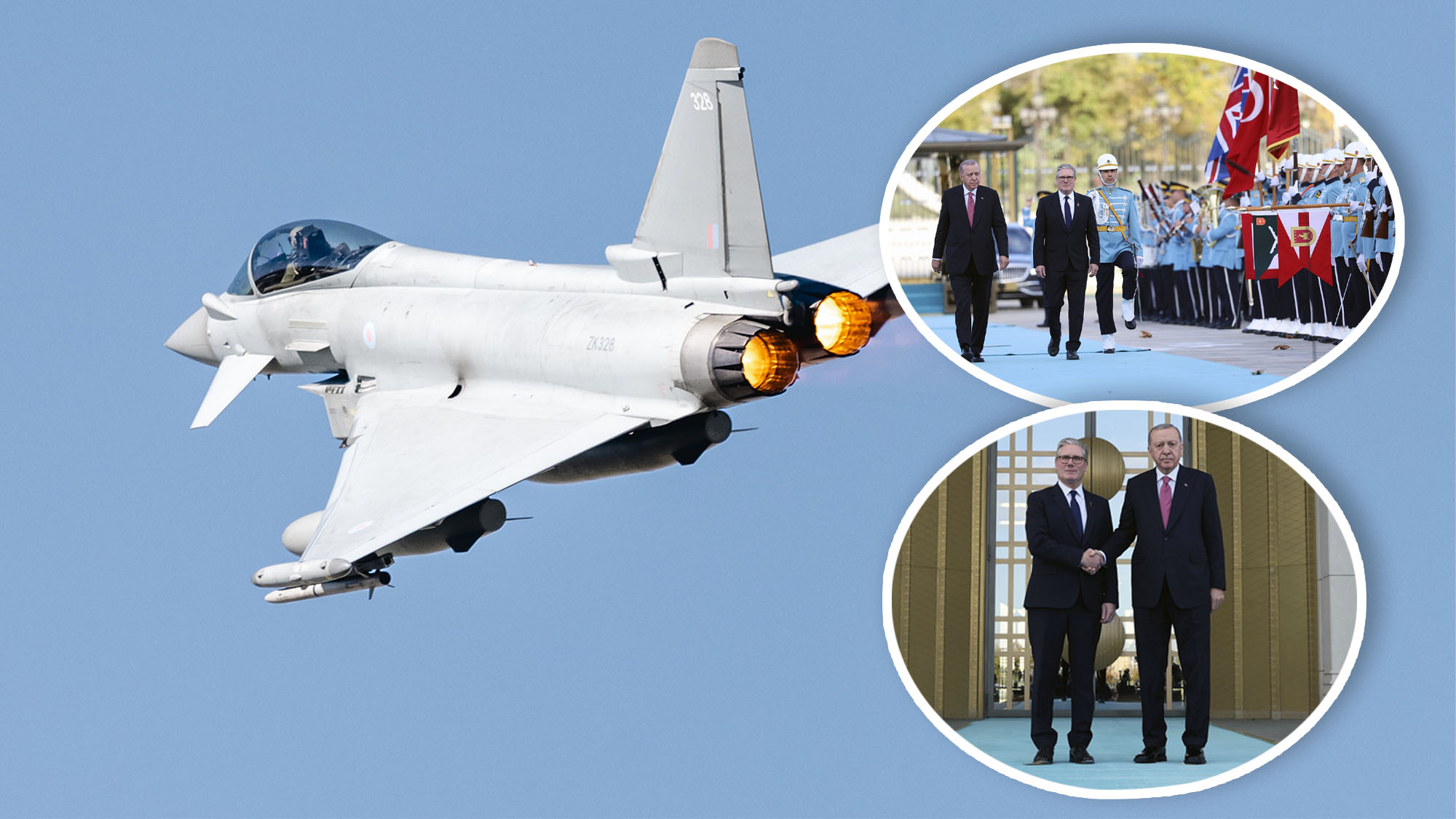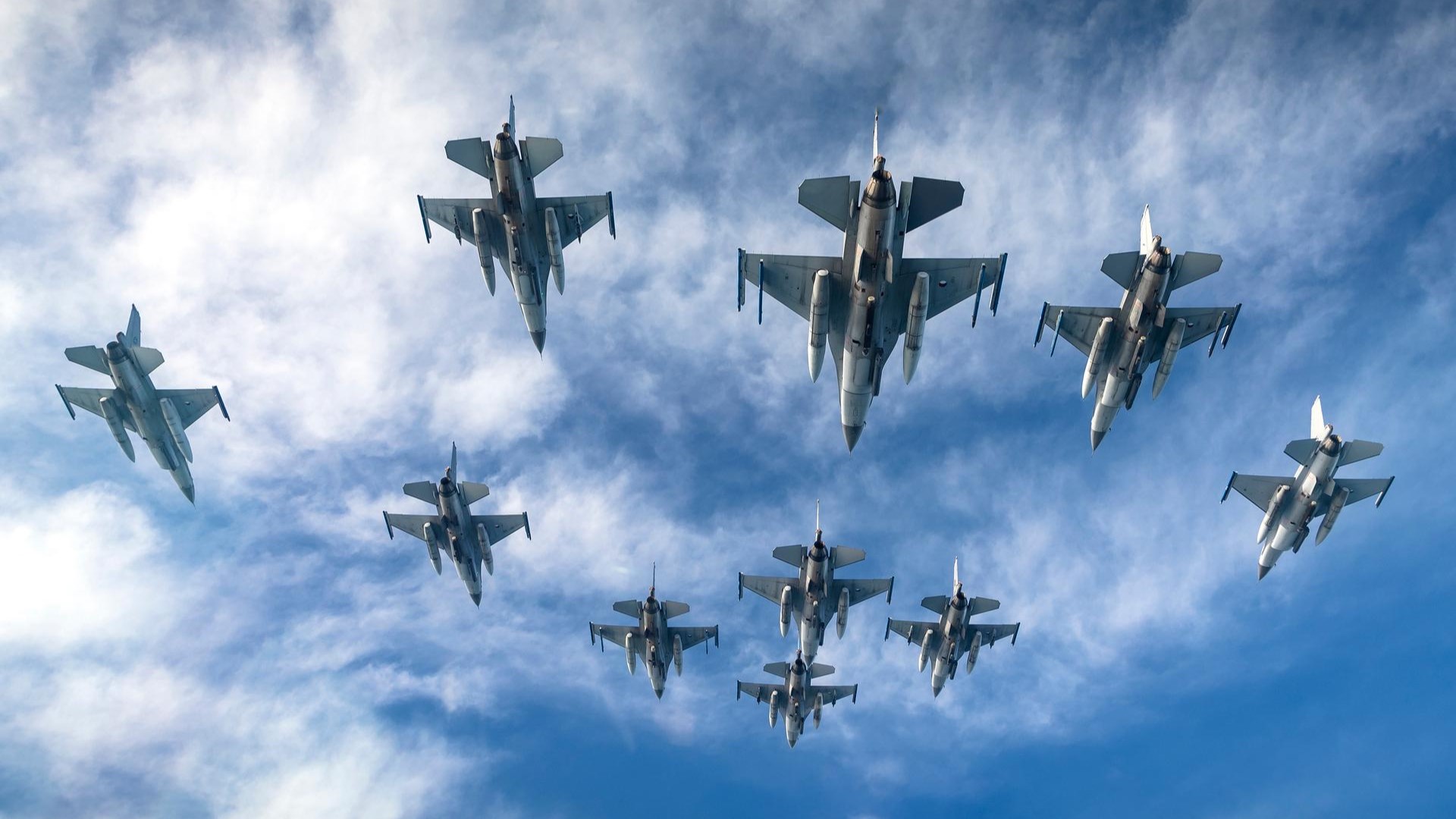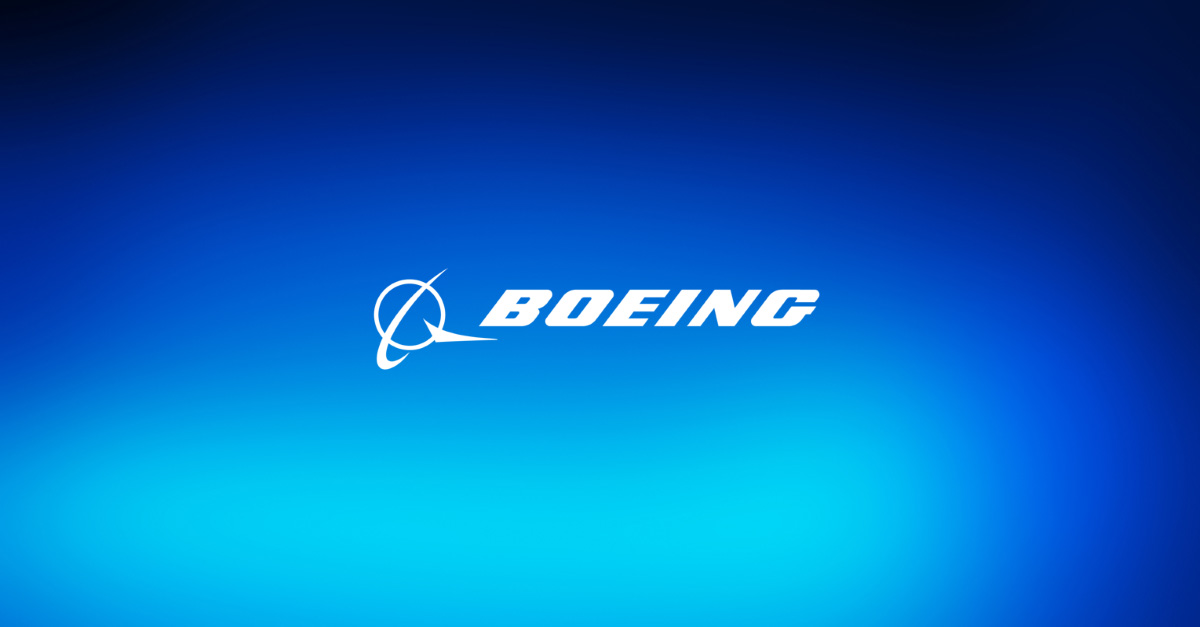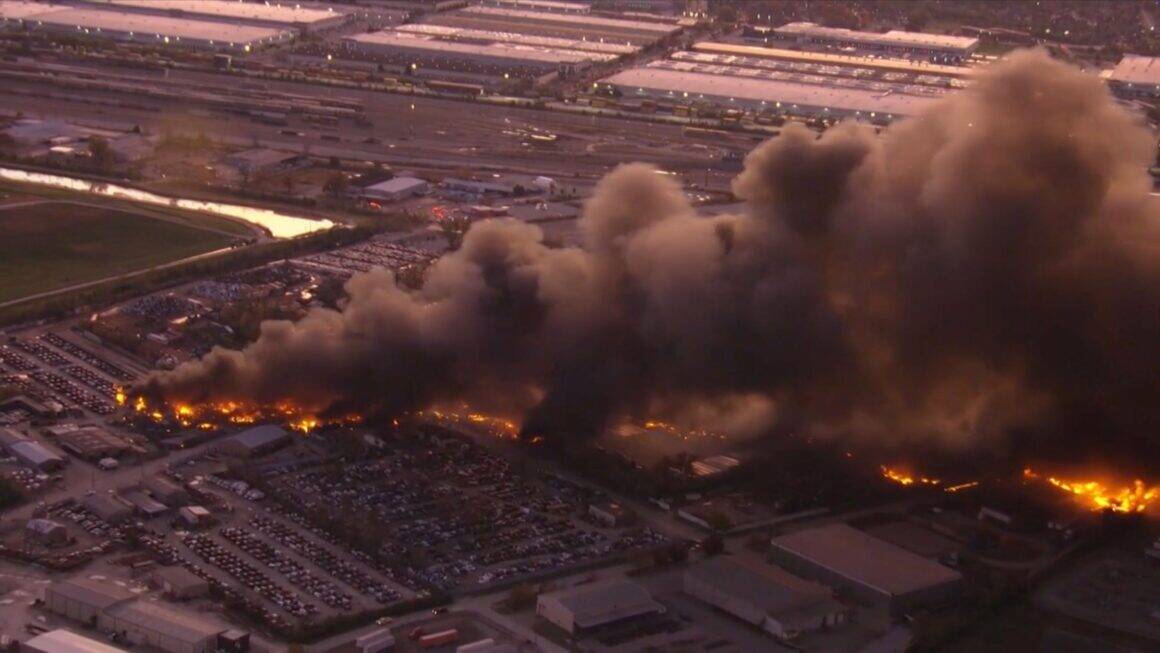The agreement was signed while UK Prime Minister Sir Keir Starmer visited Ankara and met Turkish President Recep Tayyip Erdoğan while touring Turkish aerospace facilities.
An official statement from the UK government says the deal will ensure the retention of up to 20,000 British jobs and maintain the Typhoon production line at BAE Systems’ Warton airfield, along with other UK sites contributing to the manufacture of the aircraft.
Starmer said: “This historic deal with Türkiye is a victory for British workers, a victory for our defense industry and a victory for NATO security,” while Secretary of State for Defense John Healey added: “This is another major export deal for the UK and is the biggest aircraft export deal for a generation. It will inject billions of pounds into our economy and keep production lines going. British Typhoons operating for a long time into the future.
“This agreement goes far beyond the acquisition of aircraft. It is the vanguard of the growing industrial and defense partnership between our two nations. Türkiye is an important NATO ally and the guardian of the Black Sea. By equipping them with high-end Typhoon fighter jets, this agreement will strengthen NATO’s deterrence and help make us all safer.”
I have just reached an agreement with Türkiye to secure 20,000 British jobs across the UK. pic.twitter.com/n9wCYL7rRj
-Keir Starmer (@Keir_Starmer) October 27, 2025
Türkiye will become the tenth operator of the Typhoon, joining the United Kingdom, Germany, Spain, Italy, Austria, Oman, Qatar, Kuwait and Saudi Arabia. Speculation prior to the official announcement concerned the acquisition of around 40 Typhoons, double the announced order which refers solely to new-build aircraft. The rest can arrive later, through second hand shopping of existing operators. As things stand, 20 aircraft would only allow one squadron to become operational.
In addition to the Typhoon aircraft, the Turkish Air Force will acquire some of the type’s signature weapons, including the MBDA Meteor long-range air-to-air missile.
Turkey, which originally planned to recapitalize its air force with the F-35 Lightning II, was forced to revise its plans after being removed from the F-35 program in 2019 over its decision to move forward with the acquisition of Russian S-400 surface-to-air missile systems. There were significant fears that data collected by the S-400s on the F-35’s radar signature could end up in Russian hands. Attempts have since been made to rejoin the F-35 family, but the move continues. face opposition in the united states
The main goal of any new airframe will be to replace Türkiye’s. ancient F-4 ghostswhich first entered service in the country more than 50 years ago, as well as some older F-16s. Along with the Typhoon, and potentially the F-35, Turkish Aerospace Industries (TAI) has been developing the supposedly fifth-generation Kaan fighter.
UK’s Starmer visits TAI, where Turkish Kaan fifth-generation fighter jet is being designed in Ankara.
Middle East Eye was the first publication to report on his visit to Türkiye. pic.twitter.com/S4H9VXe9vs
– Ragıp Soylu (@ragipsoylu) October 27, 2025
Earlier this week it was confirmed, after a long period of rumours, that Turkey would acquire twelve of the retired RAF C-130J Hercules aircraft, following their refurbishment. by Marshall Aerospace. Reciprocally, the TAI Hürjet has been considered as a candidate for the UK’s next jet trainer. Defense Secretary Healey already toured the training aircraft on a previous trip to Turkey, during which discussions will almost certainly have included talks about purchasing the Typhoon.
Defense Secretary Healey is shown the new TAI Hurjet training aircraft during his visit to Türkiye. While there is a possible need to replace the Hawk T1 in the UK, it seems a bit bold. On the other hand, Türkiye will try to recover something if it receives typhoons from Warton… pic.twitter.com/Z94ahO3IOD
— Gabriele Molinelli (@Gabriel64869839) November 15, 2024
RAF Typhoons and crew members were sent to Ankara alongside Starmer’s visit, further raising media expectations that a deal would be announced today.
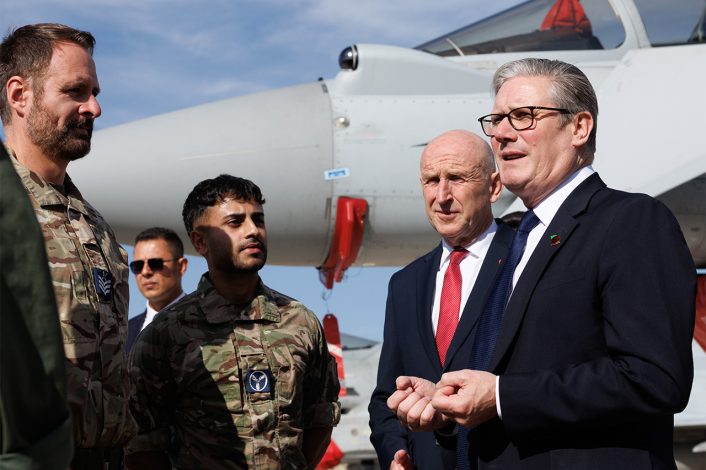
The delivery timeframe is unclear, although BAE Systems says the deal will maintain its production line. in the 2030s.
